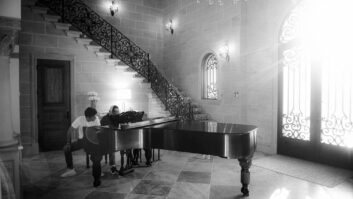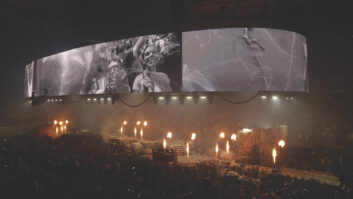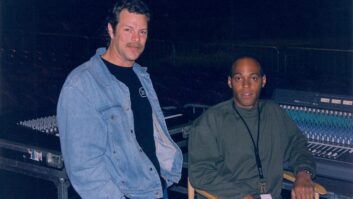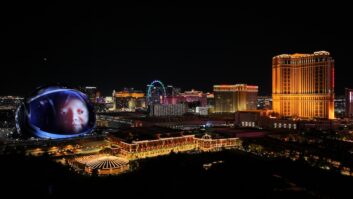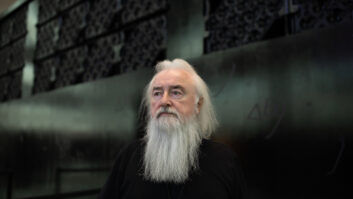The other day at a party for a soprano friend (she’s a singer, that is, and not a member of a certain family), I found myself performing with several other musicians I had never met before in an impromptu chorus, serenading the birthday girl with a medieval German canon. Shortly thereafter, a slightly inebriated guest confronted me to ask if this little group could do a request. “We can try,” I said. “Sing ‘Woodstock,’” he said.
Because we didn’t have any electric pianos (which Joni Mitchell, who wrote the song but wasn’t at the festival the song commemorated, used) or electric guitars (which Crosby, Stills, Nash & Young, who had all the chart action with the song and were there, used), we would have had to whip up a quick a cappella version. For a group who had worked together all of five minutes (which was even less than CSN&Y had on that historic occasion), that would have been difficult. So we begged off. Instead, I offered to tell the gentleman a story. “I was at Woodstock,” I said. He looked at me in admiration and confusion as to how someone so young-looking (hah!) could have accomplished such a thing. “But,” I added, “I left.” His admiration immediately turned to disgust. “How could you do that?!” he yelped. So I told him. And because it all happened exactly 35 years ago, I’ll tell you.
I was in high school on Long Island, about 20 miles outside of New York City. Being a conscientious sort at an early age, I bought advance tickets to the festival as soon as they came out, which made me one of approximately 186,000 (according to the Woodstock Statistics page at woodstock69.com). As I didn’t yet drive, I hooked up with my friend Roger (not his real name), who was a couple of years older. In college and at home for the summer, Roger arranged to borrow his mother’s Plymouth Valiant to get us up to White Lake, N.Y. I had big plans after the festival, too: I had a girlfriend up in Montréal whom I had met the year before at music camp, and when the music was over, I intended to hitchhike up to visit her for a few days. I even had a plane ticket for the trip home. It was going to be the teenage adventure of a lifetime.
Early on Friday morning, the first day of the festival, we left Long Island equipped with two sleeping bags, two rain ponchos, a couple of changes of underwear and a canned ham, figuring — as the posters promised — there’d be plenty of food available once we got to Max Yasgur’s farm. It was normally a two-hour drive up the New York State Thruway and Route 17, but we figured to allow some extra time for traffic. A little after noon, about 10 miles from the site, we stopped dead. For the next several hours, we crawled around the back roads and cow paths of Sullivan County, watching the local farmers and Hassidic Jews on their tractors and front porches with as much curiosity and trepidation as they were watching us.
Around 6 p.m., we were waved off of a dirt road by someone vaguely official-looking and directed into a field where we would park. It was the only sign of authority we would see the entire time we were there. We left the ham, the underwear and the sleeping bags in the car, but grabbed the ponchos. We could see several streams of people who seemed to be headed in more or less one general direction, so we followed as best we could. We couldn’t see or hear anything resembling a concert as we trekked over fields and downed fences, through clumps of bushes, and around oddly placed tents and trucks. After a while, we began to hear a kind of roar in the distance. We came over a ridge and caught the faint strains of a singer named Bert Sommer wailing about losing his virginity. Over another ridge, we found ourselves at the edge of what could only be described as a sea of humanity.
The scale of it was not to be believed. The huge stage looked like a small city, and the performers and stage techs like insects scurrying around. The perimeter of the natural amphitheater was lined by Porta-Sans, and way off in the distance were cone-roofed tents surrounded by hordes of people, which we figured must be where the food was. People were seated on blankets, straw mats, their jackets or just in the dirt.
Roger and I found a spot between two blankets, laid our ponchos down in the dust and sat down. Soon, Tim Hardin took the stage. Although we could hardly see anything, the sound was amazingly clear. What we could see, however, was that Hardin, a great songwriter, was having a lot of trouble staying vertical. (Apparently, he had recently resumed a heroin habit, which eventually killed him.) After just a couple of songs, he left the stage. I told Roger that I needed to use a toilet. “Please don’t move,” I begged, “or we’ll never see each other again.”
I did a broken-field walk up the hill, stepping as lightly as I could over blankets, backpacks, coolers, and conscious and unconscious people and got in line for one of the Porta-Sans, where I waited for about 15 minutes. Inside the unit, it was dark and putrid beyond belief. After I accomplished my mission, I inched my way back down the hill to try to find my spot. It was getting dark, and by the time I rejoined Roger, nearly three-quarters of an hour had gone by. As I sat back down on the lumpy poncho, Ravi Shankar was making himself comfortable on the stage, which was now covered by colorful carpets. From the distance, he looked (with apologies to Robert Klein) like a raisin poking out of a dollop of whipped cream on a bed of flowers. As the sun fell behind the Porta-Sans and the lights around the amphitheater came on, he announced “a raga tonight.” The tamboura droned, he plunked out a few mournful notes on the sitar and it started to rain.
Roger and I looked at each other and wordlessly stood up, grabbed the ponchos, put them — dust and all — over ourselves and started the long trek back to the car. Somehow, we found it. When we managed to dry ourselves off a little, we cracked open the canned ham. After a few bites, we said to each other, “This is really stupid,” and started the car.
We didn’t get very far, however, because what had earlier been a grassy field was now a vast muddy ditch and our back wheels spun helplessly. Out of the darkness and the rain, eight hippies, unbidden and silently, lifted the car up and pushed it forward a few feet, just enough so the wheels could grab. We lurched along the rain-soaked field, and 50 yards later, we got stuck again. Another phalanx of hippies appeared and helped us on our way. After four such incidents, we finally found ourselves on pavement, inching through the still-arriving crowds and randomly abandoned vehicles. By around 2 a.m., we were back on Route 17 heading south. Exhausted, we pulled over on the shoulder as far as we could, and heedless of the tractor-trailers barreling past us in the night, went to sleep.
When daylight broke, we resumed our journey down the freeway, listening to the road-closings and other disaster reports on the radio, marvelling at the steady stream of abandoned cars on the northbound side of the road. We got on the Thruway and had breakfast at the first rest stop we came to, which looked like a Red Cross shelter after a major earthquake. We finally pulled into my driveway around 9 a.m. to the great astonishment and thinly disguised relief of my parents.
For the next two days, I watched the news reports from the festival on television and was very happy I wasn’t there. A lot of the people being interviewed said they were having fun, but it didn’t look like much fun to me.
On Monday, the day the festival was to end, instead of sticking out my thumb on an upstate New York road in hopes of being picked up by some joyful Canadian concertgoers on their way home, I took a commuter train into New York City and got on a Trailways bus to Montréal. When I got there at long last, I found myself in for another disappointment. In the several months since we’d seen each other, my purported girlfriend had been seeing another guy, a local, and she had decided that she couldn’t handle more than one relationship at a time. So I was being dumped.
Unfortunately, my plane ticket home couldn’t be changed without paying a $25 fee (which, to put it in perspective, was about 50 percent of the price of the youth-fare ticket itself) and I literally didn’t have the money. So I hung around for five days in a foreign country, in a suburban house with a family who really didn’t want me there with no means of escape. And, being a cultured family, the only pop record they had in the whole house was the debut album of the dolorous bard of Canada, Leonard Cohen. So I listened to “So Long, Maryanne” and “That’s No Way to Say Goodbye” a lot.
In the weeks that followed the Woodstock festival, I didn’t tell too many of my friends the story, because I was a bit embarrassed that I had chickened out and split from what was supposed to be the defining event of my generation. People I knew who had stuck it out regaled me with tales of what an incredible time they had, and perhaps they were telling the truth, but I could tell, even in their enthusiasm, that this would have been an experience I really wasn’t ready for.
When the movie came out a year later, I finally got to see some of the performances I had missed and they were, without exception, incredible. I saw it on a starlit night at a drive-in in rural New Hampshire from the comfort of the back seat of a Plymouth Fury convertible with a brand-new girlfriend, plenty of popcorn and a lighted, fairly clean men’s room just a few yards away. To my way of thinking, it was definitely a much more enjoyable way to experience the event.
I’ve driven up Route 17 many times since August 1969 and passed the signs for the turnoff to White Lake. Though I still don’t regret my decision to leave, I can’t help but wonder, “What if?” What if I had been a looser kid, more adventurous, less concerned about mundane things like food, sleep and hygiene?
I didn’t go back to Montréal again until just last year when I had a gig there. As the plane approached, I thought I could see my old girlfriend’s old house. I Google’d her and found her living in Western Canada. I sent her a note and she was delighted to hear from me. She’d married the guy she had dumped me for, had two children with him and then got a divorce after 30 years. It took awhile, but I’ve developed a tolerance for Leonard Cohen, and when a song by him comes on the radio, I no longer instantly change the station.
My friend Roger went back to college and then to medical school, and we lost touch with each other. Bert Sommer died in 1990. The Woodstock movie made $50 million in its first release, and two of the guys who had put the thing together retired very young and very rich. My original poster (which places the event in Wallkill, N.Y.) is framed on my office wall, along with my $6-a-day advance tickets, never collected. I’m told they’re worth a lot of money.
As for the performers at the Woodstock festival, I never did get to see Janis Joplin or Jimi Hendrix, and it wasn’t until just a couple of years ago, after half the band was dead, that I got to see The Who live. Those seats cost me $100 each. But in the weeks and years to follow Woodstock, I got to see Jefferson Airplane, Richie Havens, the Grateful Dead, Santana, Arlo Guthrie, The Band, Joan Baez, Sha-Na-Na, Joe Cocker, John Sebastian and the Incredible String Band. They were all great, and I didn’t need to sit in the mud and the rain for three days to have the experience. Even though I didn’t make it through all of the actual event, I still think of myself as part of the Woodstock generation.
A final coda: At a high school reunion about five years ago, I ran into Roger’s younger sister, Susan (also not her real name), who was in my class. Roger was a successful doctor in New York City, she told me, and has a good life. And then she added, “But he’s still angry at you.” I was flabbergasted. “Why?” I asked. Did he think I was the one who forced him to leave the Woodstock festival and miss the event of a lifetime?
“Oh no,” Susan said with a laugh. “That wasn’t the problem. He didn’t want to stay there either. He’s pissed off because you made him sleep in the front seat of the car, which wasn’t nearly as comfortable as the back seat.”
Roger, if you’re reading this, you know who you are (and what your real name is), and I want you to know I’m really sorry. I had no idea that you wanted the back seat. But I’m not sorry we shared a little bit of history together. Despite what Robin Williams says, we were there and we remember.
Paul Lehrman is having trouble figuring out what happened to the ’70s, ’80s and ’90s.

